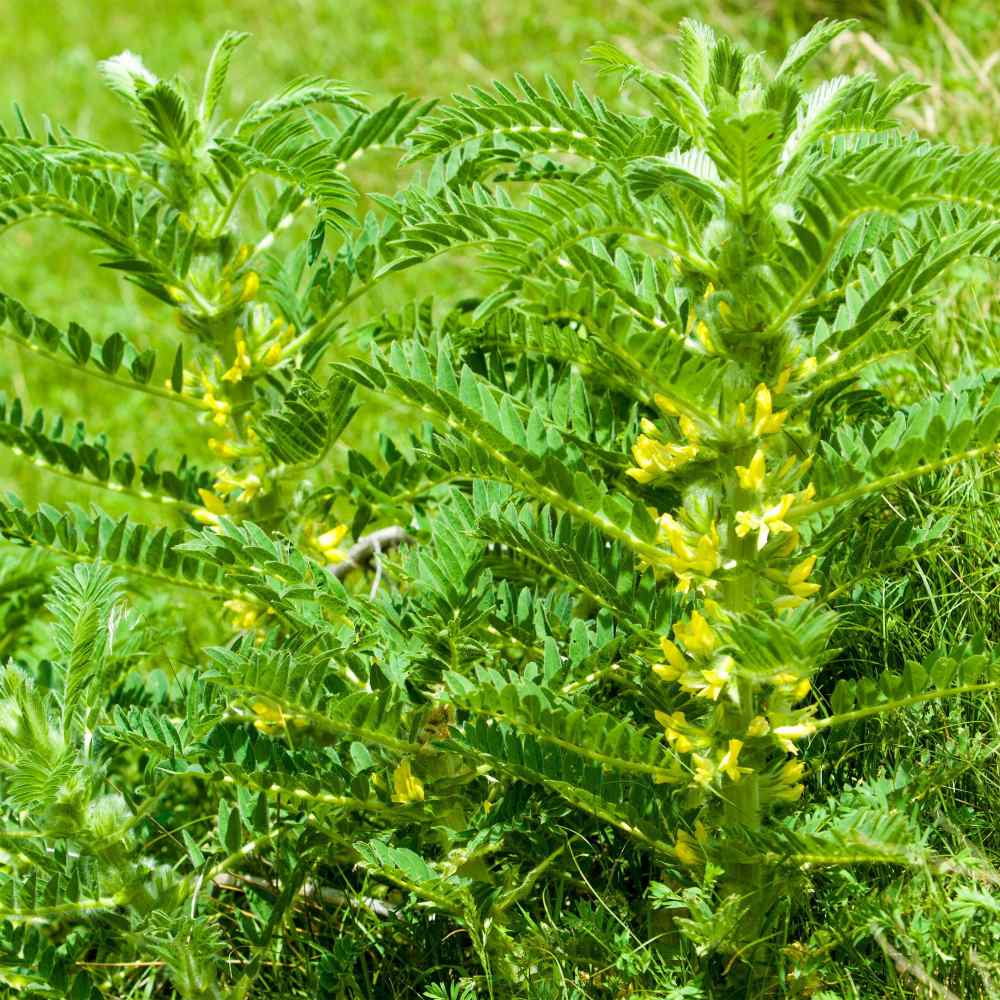Astragalus (Astragalus membranaceus): Unlocking the Potential of an Ancient Herb
Astragalus, scientifically known as Astragalus membranaceus, is a powerful herb that has been used for centuries in traditional Chinese medicine. Also known as Huang Qi, it belongs to the legume family (Fabaceae) and is native to Northern and Eastern regions of China. With its long history of use and a wide range of potential health benefits, astragalus has gained popularity worldwide. In this article, we will delve into the fascinating world of astragalus, exploring its history, botanical features, chemical constituents, and the potential health benefits it offers.
Botanical Features:
Astragalus is a perennial herb that typically grows to a height of 16 to 36 inches. It features a woody root system and multiple stems with compound leaves, consisting of small leaflets. The flowers are yellow and pea-shaped, forming in clusters. The plant thrives in dry, sandy soils and is well-adapted to arid and semi-arid environments.
Historical Uses:
Astragalus has a rich history in traditional Chinese medicine, where it is considered one of the most important tonic herbs. It has been used for over 2,000 years to enhance vitality, strengthen the immune system, and promote overall wellness. In traditional Chinese medicine, astragalus is believed to tonify the Qi (vital energy), nourish the spleen and lungs, and support the body's ability to adapt to stress.
Chemical Constituents:
The therapeutic properties of astragalus are attributed to its diverse range of chemical constituents. It contains various bioactive compounds, including polysaccharides, saponins (astragalosides), flavonoids, amino acids, and trace minerals. The polysaccharides and saponins are considered the primary active constituents responsible for the herb's immune-enhancing and antioxidant effects.
Potential Health Benefits:
1. Immune Support: Astragalus is renowned for its immune-modulating properties. It stimulates the production and activity of white blood cells, enhancing the body's defense mechanisms against infections and diseases. It is commonly used to support the immune system during times of increased susceptibility.
2. Anti-Inflammatory Effects: Astragalus exhibits potent anti-inflammatory properties, which can help reduce inflammation throughout the body. It may be beneficial for inflammatory conditions such as arthritis, allergies, and respiratory tract infections.
3. Energy and Vitality: Traditionally, astragalus has been used as a tonic herb to boost energy levels, increase stamina, and promote overall vitality. It supports the body's natural energy production processes and may help combat fatigue and improve physical performance.
4. Adaptogenic Effects: Astragalus is classified as an adaptogen, meaning it helps the body adapt to stressors and restore balance. It supports the adrenal glands, reduces the negative effects of stress, and promotes resilience and overall well-being.
5. Cardiovascular Health: Astragalus has been studied for its potential cardiovascular benefits. It may help regulate blood pressure, reduce cholesterol levels, improve blood flow, and protect against heart-related conditions.
6. Anti-Aging Effects: The antioxidant properties of astragalus help protect cells from oxidative stress and damage caused by free radicals. This may contribute to its potential anti-aging effects, promoting longevity and overall cellular health.
7. Liver Protection: Astragalus has hepatoprotective properties, meaning it supports liver health and helps protect against liver damage. It may assist in the detoxification process and promote optimal liver function.
8. Respiratory Health: Astragalus has a long history of use for respiratory conditions. It is believed to strengthen the lungs, improve respiratory function, and provide relief for coughs, colds, and asthma.
Usage and Preparations:
Astragalus can be consumed in various forms, including capsules, powders, extracts, and teas. The dosage and form of astragalus may vary depending on the desired effects and individual preferences. It is generally considered safe for most individuals when used as directed, but it is always recommended to consult with a healthcare professional before starting any new herbal regimen.
Precautions and Considerations:
While astragalus is generally well-tolerated, there are a few precautions to keep in mind:
1. Allergies: Individuals with known allergies to plants in the Fabaceae family, such as peanuts or soybeans, may have an increased risk of allergic reactions to astragalus. It is important to exercise caution if you have known allergies.
2. Autoimmune Conditions: Astragalus may stimulate the immune system, which could exacerbate symptoms in individuals with autoimmune conditions. It is best to consult with a healthcare professional before using astragalus in such cases.
3. Drug Interactions: Astragalus may interact with certain medications, particularly immunosuppressants or anticoagulants. It is advisable to consult with a healthcare professional if you are taking any medications.
In conclusion, astragalus is a remarkable herb with a rich history and a multitude of potential health benefits. Its immune-enhancing, anti-inflammatory, adaptogenic, and cardiovascular supportive properties make it a valuable addition to holistic wellness practices. Whether used for immune support, vitality, or overall well-being, astragalus offers a natural and gentle way to promote health and vitality. As with any herbal remedy, it is important to use astragalus responsibly and consult with a healthcare professional before incorporating it into your health routine.





0 Comments